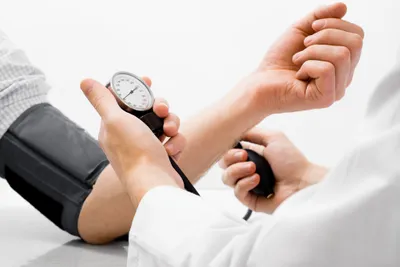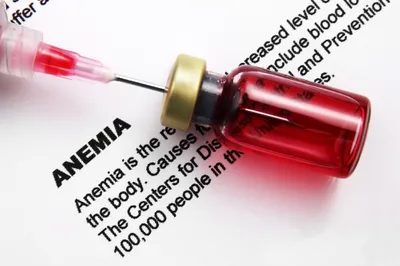Are you prone to icy digits? If your fingers and toes are constantly and inexplicably cold even when everyone else is warm, you may be dealing with an underlying health issue. Let’s ask the health experts, “Why are my piggies always cold?” and find out what constantly cold fingers and tootsies can actually mean…
1. Circulatory Problems
It might be a little too obvious, but circulatory issues can reasonably lead to cold digits. According to cardiologists at New York’s North Shore-LIJ Health System, compromised blood circulation can result from obstructed blood flow (or a cholesterol blockages that stop up capillaries or arteries), or from an improperly pumping heart.
If a blockage or organ inefficiency is present (i.e., heart) oxygen rich blood flow will be decreased, and lead to stone cold fingers and toes. You may also experience a telltale tingling, numbness, and prickly feeling in your extremities because they are the furthest areas from the heart.
2. Hypothyroidism
Doctors at Whole Health Chicago, Center for Integrative Medicine, in Illinois, point out that ice cold fingers and toes are often a sign of hypothyroidism. In fact, patient complaints of cold hands, cold feet, and always feeling cold despite warm weather often lead to testing for hypothyroidism.
An underactive thyroid gland will often cause the body’s internal thermostat to go wonky. Also, normal bodily functions may be inefficient—resulting in constipation, fatigue, and weight gain.
3. Low Blood Pressure
Low blood pressure, or what medical experts refer to as hypotension, will often lead to cold extremities. In fact, internists at internal medicine specialist at NYU Langone Medical Center, in New York City, claim that plummeting blood pressure will often lead blood flow away from the hands and feet.
When blood pressure drops due to several factors (i.e., prescription medications or dehydration), the blood vessels will naturally re-route blood flow back towards the heart and other vital organs. As a result, patients will experience icy fingers and toes, nausea, blurry vision, and may even feel dizzy and faint.
4. Anemia
Anemia affects blood supply, which WebMD points out, will result in cold fingers and toes. Anemics, or those with inadequate red blood cells (hemoglobin) due to low iron in the diet or blood loss (due to an ulcer or heavy periods) often visit the doctor reporting unexplained coldness in the extremities.
Cold hands and feet are a common symptom of anemia, along with paleness, headaches, dizziness, and breathlessness. If you experience blood loss that results in anemia, it’s the decreased oxygen in the blood that will lead to cold hands and feet.
5. Autoimmune Diseases
Several autoimmune conditions—including Lupus and rheumatoid arthritis, Scleroderma, and Sjogren’s syndrome—can lead to an associated disorder, called Raynaud’s, says rheumatologists at California’s Providence Saint John’s Health Center. Raynaud’s causes the blood vessels to narrow, particularly those in the fingers, nose, ears, and toes, when the body feels emotional stress.
This results in a telltale chill in these extremities, which can also be accompanied by numbness, redness, and tingling. While autoimmune conditions characterize any condition in which the immune system attacks the body, Raynaud’s itself, is not very harmful.
6. Certain Medications
You might never imagine that a drug prescribed to make you feel better could actually result in health issues. However, in the case of certain medications taken for migraine headaches, blood pressure, or cancer treatment, a side effect of your prescription could be unexplained cold fingers and toes.
The above mentioned medications, according to the Mayo Clinic, can cause narrowing of the blood vessels, and Raynaud’s, the same condition we mentioned in the previous slide. If you experience cold extremities as a side effect of medication, your doctor may be able to provide an alternative.
7. Vitamin B12 Deficiency
Harvard Medical School researchers note that a B12 deficiency can result in icy fingers and toes. Those with inadequate milk, eggs, poultry, and meat in their diets can develop a B12 deficiency, particularly vegans and vegetarians, or those with Celiac or Crohn’s disease.
Inadequate vitamin B12 can cause decreased red blood cell production (or anemia). However, taking B12 supplements can right the deficiency within about a month. A quick blood test from your doctor can determine if your B12 levels are low.










